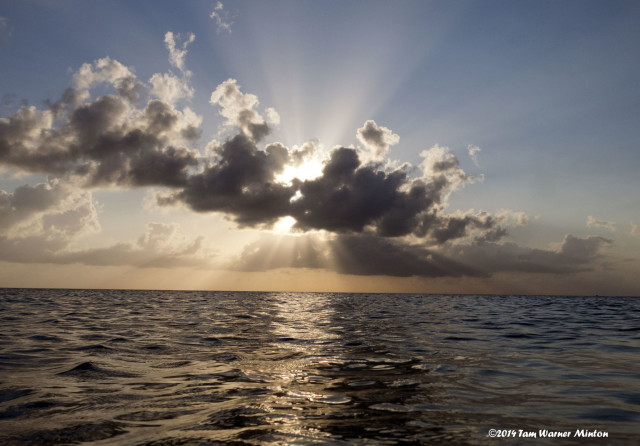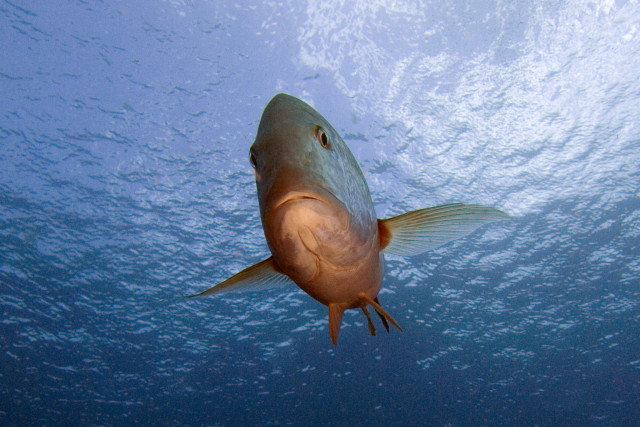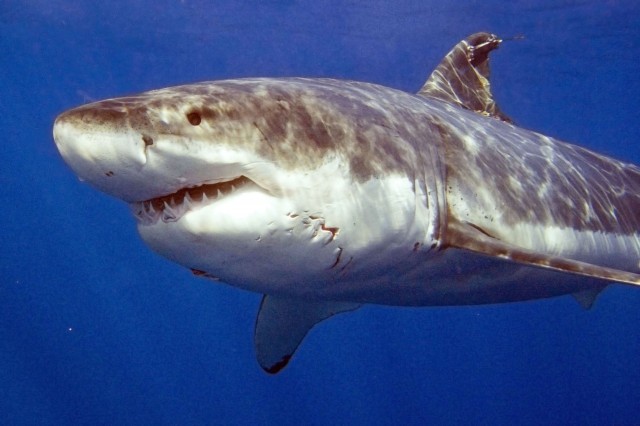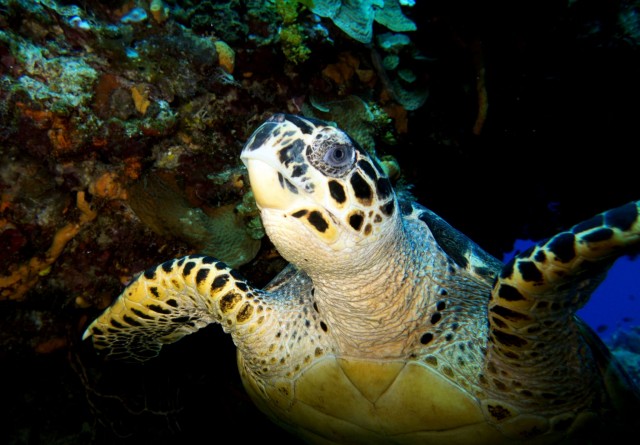Marine Life & Conservation Blogs
Our Oceans are in Critical Danger… can you really make a difference?

Yes. You can. Each and every one of us can make a difference. How? By making small, but important, choices. Here are some easy examples of how you can start to make a difference:
- Only eat sustainable and responsibly fished seafood. How do you know what is okay to eat? Go to Seafood Watch, the app updated regularly by the Monterey Bay Aquarium and when you go out to eat… check to see which seafood on the menu is sustainable. The lists are separated by area of the country (or world), and given a Green, Yellow, or Red light. Red means the fish is critically overfished. Ever wonder why Red Snapper is hard to find these days? They’ve been overfished, and their populations have critically declined. You can read about it here, at NOAA Fishwatch.
In some areas of the world it is okay to eat Snapper…fresh, line caught snapper….but in others, the populations are not sustainably fished. By using the Seafood Watch app, you can check which fish are okay to eat, and which ones to avoid. Here is the worst cop out of all: well, it’s already dead so I might as well order it. It is the demand for it that drives over-fishing. When people realize that in order to eat Red Snapper in the future they must not order it now… give our fisheries time to recover. Until then, if it is on the Red List, don’t eat or order it!
- Do not eat at restaurants that serve endangered animals. Do not eat at restaurants serving shark. Any kind of shark. Why? Sharks are endangered. If we lose our sharks, our oceans will collapse. That seems pretty dramatic, right? But it is true. Sharks have been around for 450 million years. They are the apex predator (except for humans) in the ocean. They keep marine populations in balance. Sharks tend to eat the older, sicker, slower members of a population, which keeps that population healthier. They keep populations in check, which protects other food sources in the ocean like grasses, plants, corals, mollusks, etc. The foodweb is a constant balancing act, and sharks are a keystone species, meaning that they must be in the ecosystem or that ecosystem will collapse. Sharks kill around 5 people a year. Humans slaughter 75 to 100 million sharks a year, mostly for their fins. For that matter, do not eat turtle, turtle soup, turtle eggs, etc. They are critically endangered!
- When you travel, fly airlines that do not carry endangered species cargo. American Airlines just announced it will no longer carry shark fins as cargo! They join, just to name a few, Air New Zealand, Air Pacific, Cathay Pacific, Singapore Airlines, Jet Airways, and United Airlines. Many, many carriers are joining the crusade to stop transporting ivory, rhino horns, shark fins, manta fins, sea turtles and other endangered species parts. Choose your airline based on this kind of criteria. If they contribute to the shark fin trade, do not fly them. And let them know why you won’t fly them. Use social media to chastise any transport of these endangered species parts.
- When it comes to trading in endangered species, we know the major consumer is China. Other Asian countries are also consumers, but the heart and soul of the shark fin trade is in Hong Kong. The nation of China has stopped serving Shark Fin Soup at state functions… a huge leap forward! Hong Kong has recently followed suit. 95% of shark fins are consumed by Asian countries and go through Hong Kong. The trade is beginning to decline, but we have to keep up the pressure. Shangri-La Hotels and the Peninsula Hotel Group just announced they will no longer serve shark fin soup, bird’s nest, or black moss – all endangered. If you are traveling to Asia, ask the hotel if they sell shark fin soup, any ivory products, or anything with rhino horns. If they do, make the decision not to stay there, and let them know why.
- Don’t buy Chinese medicines with rhino horn, shark liver, or any other endangered species ingredient. Believe me, no scientific study has ever shown that these ingredients cure disease or serve as an aphrodisiac. If there is no demand, the trade will collapse.
Do you know the extent that humans depend upon the ocean to live? The Nature Conservancy points out that the ocean absorbs 1/3 of human produced carbon-dioxide and supplies us with oxygen. Kelp, a plant from the ocean, is used to make salad dressing, dairy products, shampoos and medicines. Compounds from the coral reefs, plants and animals, help treat numerous diseases. Oceans produce 70% more goods and services into our economies and GDPs than land products. Each and every one of us needs the ocean healthy in order to survive. We all have a responsibility.
Rob Stewart, producer of the film Sharkwater, and Revolution, said this recently on his Facebook page: “By 2050, we will live in a world with no reefs, no rainforests, no fish, and 9 billion hungry people.” You might not be here, but if you have children, they will. It is horrifying to think about how catastrophic living in that world would be. There are only a finite amount of resources, and we cannot keep allowing our population to grow without serious consequences to the quality of human life.
Start small, but start soon! If we all make small, good decisions, we can make a big difference. We must all begin now… life depends on it.
For more from Tam, visit www.travelswithtam.com.
Blogs
Saba’s Plan for a Coral Comeback

Saba has an exciting new initiative to restore its coral reefs. This new project, running from 2024 to 2026, will focus on reviving key species in the island’s underwater ecosystems. With a collaborative team from the Saba Conservation Foundation (SCF) and Van Hall Larenstein (VHL) University of Applied Sciences, the project aims to restore both corals as well as sea urchins.
This initiative is centered around coral restoration, specifically reviving two essential coral species—staghorn coral (Acropora cervicornis) and elkhorn coral (Acropora palmata). By mapping parent colonies and using a technique known as coral gardening, SCF will create and maintain coral nurseries. These corals will eventually be outplanted at key reef sites around Saba to not only expand the number of coral colonies, but also provide essential fish habitat. The project focusses on installing coral nurseries, training staff with the newest techniques and starting with the restoration of key reef sites.

Reef Cleaners to the Rescue
It’s not just corals getting a makeover—this project also shines a spotlight on the essential role of grazers, particularly sea urchins. VHL is leading the charge on cultivating and restocking two key sea urchin species, West Indian sea egg (Tripneustes) and long-spined sea urchin (Diadema), known for their ability to keep algae in check. By removing algae, which are important competitors of corals, they help the coral to thrive. By restoring these “reef cleaners,” Saba’s project will give corals the breathing room they need to grow, setting the stage for a healthier, more balanced marine ecosystem.
From Tiny Urchins to Big Goals
The project will be funded as part of the Dutch Government’s Nature and Environment Policy Plan (NEPP) 2020-2030 for the Caribbean Netherlands, a comprehensive initiative aimed at conserving and restoring the unique natural environments of the Dutch Caribbean islands, including Saba, St. Eustatius, and Bonaire. This project is aiming for big milestones: build and maintaining coral nurseries, the expansion of urchin cultivation facilities, and the creation of a dedicated research center. By 2026, the project hopes to ramp up coral and grazer restoration, with the ultimate goal of extending these efforts across the Dutch Caribbean. By linking local initiatives to broader regional goals, Saba’s restoration project promises to leave a lasting impact on both the environment and the community.
Find out more about the DCNA at dcnanature.org.
Blogs
Reef-World marks two decades of marine conservation: strengthening impact amid coral reef threats

Empowering ocean stakeholders to tackle future challenges and ensure the survival of coral reefs and humanity
2024 marks the 20th Anniversary of The Reef-World Foundation’s tireless efforts for global coral reef conservation. The UK charity is the international coordinator of the UN Environment Programme’s Green Fins initiative, known as the leading voice in sustainable marine tourism. Today, Reef-World released its 2023-2024 Impact Report outlining a year of substantive growth and impact in its marine conservation programmes.

Impact Report Highlights:
- Impressive improvements in environmental behaviours to protect coral reefs by the marine tourism industry as the global participation of Green Fins increases.
- Continued capacity building for government and NGO staff to effectively manage marine tourism activities in Asia, Caribbean and Red Sea regions.
- For the first time in Green Fins’ 20-year history, tourism operators have achieved ‘Best Environmental Performer’ status by demonstrating the lowest possible environmental impact in their environmental assessments. In 2024, three dive operators achieved this challenging milestone.
- Significant increases in global participation of Reef-World’s innovative digital conservation tools.
- 138 Green Fins dive operator members achieved the strict threshold for PADI Eco Center recognition.
- Developed four new educational materials and translated two into 16 languages to support the marine tourism industry in achieving sustainability targets.
- Establishing a new Reef-World Development strategy and recruiting new roles – Development and Programmes Managers.
- Reef-World’s board welcomes new Chair and Trustees strengthening organisational leadership.

Reef-World started as a one-person mission to inspire and empower communities to act in conserving and sustainably developing coral reefs and related ecosystems. Today, the team of 12 continues to meet this mission by inspiring and empowering the global marine tourism community to be exemplary sustainability leaders by using the Green Fins guidelines and tools to simultaneously use and protect the world’s precious reefs.
In April 2024, the fourth global coral reef bleaching event was confirmed. Reef-World’s work has never been more urgent as the marine environment, and the benefits they provide humanity, continue to be eroded by global threats. The reduction of local threats, like those from the marine tourism industry, is an essential step to ensuring a future where coral reefs survive and continue to support the millions of people who depend on their ecosystem benefits. Reef-World’s work buys time for coral reefs and related ecosystems to be resilient to the impacts of global threats.
“Right now our corals are facing the greatest fight of their existence as the terrifying predictions of the steps towards their complete extinction are starting to come true. But all is not lost, reefs are resilient and they have existed on this planet for millions of years. We must take action now, to buy time for reefs by reducing threats facing them and allowing them to react and adjust to the changing environment they need to survive in.” – Chloe Harvey, Executive Director
Looking Forwards:
Like coral reefs, the Reef-World team needs to be resilient in the face of the complex challenges of the conservation sector. Reef-World has invested significantly in developing a Culture of Care to ensure the well-being of its team on a daily basis, continuing to be an exemplary employer to enable its team to best achieve the mission for coral reef conservation.
With the foundations of a Culture of Care and organisational development laid, Reef-World is emerging from the end of a natural organisation life cycle, that brings the challenges of growth and scale, stronger than ever. With a new strategy in place to generate much needed resources, Reef-World is excited for the opportunities to leap forward, continue to scale our impact and lean into new innovations and untapped opportunities for marine conservation.
We continually strive to become a forward-thinking organisation that delivers on our goals and commitments to our stakeholders with fresh approaches and not being afraid of steering away from a “normal approach.” This approach is not only applied to our programmes of work but also internally and carries over to our Culture of Care for our team.” — JJ Harvey, Operations Director

The Reef-World Foundation is immensely grateful for the continued support of its grant funders: UN Environment Programme, IUCN’s Blue Natural Capital Financing Facility, Adventure Travel Conservation Fund, PADI Aware Foundation, and World Nomads Footprints Program.
Reef-World would also like to express its gratitude to international partners whose vital support has resulted in significant tangible benefits for our work and mission: PADI; Professional SCUBA Schools International (PSS); Explorer Ventures; 1% for the Planet; ZuBlu; Snorkel Venture, GSTC; Dive O’Clock; Seven Dragons; DiveAssure and Eco Beach, without whom these achievements would not be possible.
The full 2023–2024 Annual Impact Report is available on Reef-World’s website.
-

 News2 months ago
News2 months agoIconic SS United States to become the World’s Largest Artificial Reef
-

 News3 months ago
News3 months agoBook Review – 52 Assignments: Underwater Photography
-

 Gear News3 months ago
Gear News3 months agoDYNAMICNORD – New German diving brand enters the British market
-

 News3 months ago
News3 months agoExploring Cenote El Pit: A Diver’s Dream
-

 Gear News3 months ago
Gear News3 months agoTry BARE drysuits (and maybe even win one!) this Friday with Sea & Sea at North West Dive Fest
-

 Marine Life & Conservation3 months ago
Marine Life & Conservation3 months agoBook Review: Coral Triangle Cameos
-

 Blogs2 months ago
Blogs2 months agoDive the Egyptian Red Sea this Autumn with Regaldive
-

 News3 months ago
News3 months ago2024 Ocean Art Underwater Photo Competition Announced


















